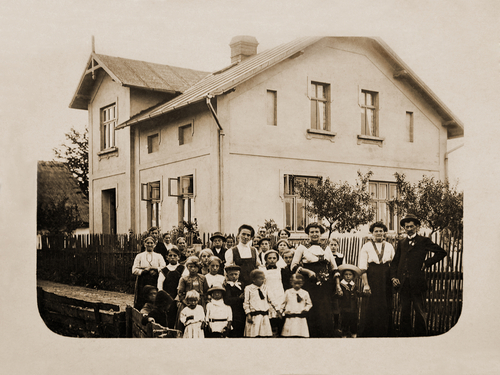The Important Women of Social Work

March is a special occasion for Florida State University’s online Masters of Social Work program. To celebrate both National Social Work Month and Women’s History Month this month, we’re honoring the accomplishments of some remarkable women in social work. No matter where you are your educational journey, their momentous achievements can serve to further encourage you as one of tomorrow’s leaders in the field.
Past Professional Pioneers
The pivotal role of women in the field of social work began in the mid-19th century when dedicated figures set out to initiate major social reform. One of these early pioneers who left a lasting mark on the field was Jane Addams (1860-1935). Raised in a relatively affluent family in rural Illinois, Addams learned of the plight faced by the poor early in life, and subsequently made it her life’s mission to improve the lives of this impoverished population. Her monumental efforts resulted in the establishment of the first settlement house known as the Hull House in Chicago, that during its heyday served up to 2,000 people a week. There she lived alongside poverty-stricken individuals to better understand their needs and tailor her proposed reforms. In addition, she was also a crucial player in the adoption of important improvements in public education and aid programs. Addams was lauded in her day by being selected to serve as president of international peace organizations, such as the Women’s International Peace Congress. She was also awarded the Nobel Peace Prize in 1931.
Similarly influential was Jeannette Rankin (1880-1973), who was professionally committed to women’s causes. Following her graduation from Columbia School of Social Work in 1909, Rankin went on to achieve a remarkable political landmark in 1916 by becoming the first woman elected by the state of Montana to the House of Representatives. In that role, Rankin worked tirelessly to improve conditions and rights for the modern woman. In fact, she was one of the loudest voices in the development of the 19th Amendment to the Constitution, which was the amendment that afforded voting rights to women.
While key figures like Addams and Rankin worked to better the lives of others, Mary Ellen Richmond (1861-1928) helped define the field of social work itself. She wanted the field of social work to be recognized as its own profession. In her various rallies and presentations, such as the one given at the 1897 National Conference of Charities and Correction, Richmond called for a standardized set of practices within the field of social work as well as a codified curriculum to educate future generations.
Modern Era Masters
Key women in the 20th century have honored the impressive legacy of accomplishments passed down by these 19th-century innovators by continuing their dedication to the field of social work. Barbara Mikulski (b. 1936) is a prime example: serving as a Senator for the State of Maryland for two decades (1987-2017), Mikulski was elected on a political platform that stressed the importance of equal rights and treatment across all ethnicities and demographics. She was a crucial contributor, for example, to the passage of the Child Care and Development Block Grant Act of 2013, which reallocated government funds to provide for better options for low-income families to find affordable child care. She was also highly active on a number of important Senate committees, including the Committee on Health, Education, Labor, and Pensions, and her impacts can still be felt today even after she transitioned from the political to the academic realm. She now teaches at Johns Hopkins University.
Another of these modern-day masterminds in the field of social work is Joan Levy Zlotnik, whose nearly four-decade-long career has afforded her the opportunity to use her skills in a variety of fields. Following the completion of her MSSW at the University of Wisconsin, Zlotnik worked to transform the role of social work within the school district of Belchertown, Massachusetts. As part of her work there, Zlotnik created an unprecedentedly rich curriculum to support health and development awareness, and also offered her skills as the Director of the state’s Department of Mental Health. Since that point she has contributed to the Council on Social Work Education as well as with the National Association of Social Work as a key figure promoting novel research and advancement in the field.
This spirit of innovation in social work has continued within an even younger generation of star professionals in the field. Tamara Grigsby (1974-2016), for instance, was a rising star in the field of social work. Though her career was cut short by cancer, Grigsby was nevertheless able to transform her education into a role within the Democratic Party. From 2005 to 2103, Grigsby worked diligently as a member of the Wisconsin State Assembly to reform state policies; beyond her office, she devoted her time to social welfare causes, maintaining an active role with prominent organizations such as the National Association for the Advancement of Colored People (NAACP) and the Milwaukee Child Welfare Partnership Council.
Add Your Story with Florida State University
These women all carried the field of social work into the spotlight by dedicating their careers to refining the field and making the country a better and more equal place across the academic, social, and legislative realms. There is more work to be done and more innovation to be achieved, however, which makes now an ideal time to consider pursuing an online MSW degree with Florida State University. Offering a curriculum that is comprehensive yet also customizable to individual interests and schedules, Florida State University’s online MSW degree can be the beginning of a professional story that might one day be compared along with the accomplishments of these amazing women.